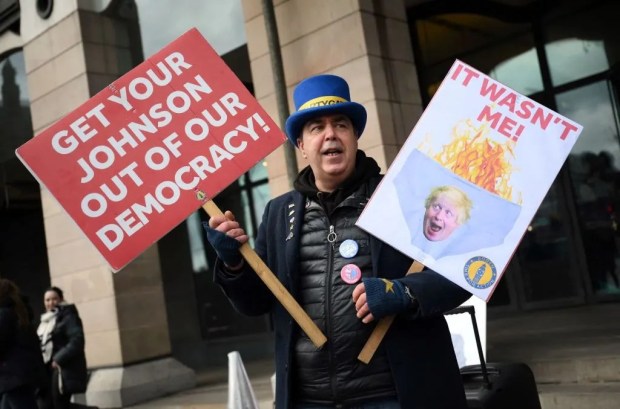The message from the budget last month was clear – at some point in the future the Chancellor is going to raise taxes. A lot. The announced increase in corporation tax rate from 19 per cent to 25 per cent from 2023 is a sign of things to come.

And yet the overall tax take has already increased substantially since the Thatcher lows of the late 1980s. The amount of tax the government raises is already equivalent to 35 per cent of GDP, the highest level since 1969. And prior that that, as the chart above shows, you have to go back to 1948/9 for years when the tax take was this high.
And so it is probably no surprise that some of the UK’s richest are looking to shield their wealth from the Chancellor and move to places where they do not need to bother with paying back the costs of protecting society from the ravages of the pandemic. In February alone, the Isle of Man experienced a tenfold increase in the number of people looking to move to the small Island half way between Belfast and the Lake District.
And lucky them as residents pay no capital gains tax, no inheritance tax and no stamp duty and pay far lower rates of income tax with a maximum of just 20 per cent, less than half the UK’s maximum rate of 45 per cent. Although with the exception of the annual TT motorcycle race, it looks a very boring place to live.
But this is not just an option used by a handful of wealthy individuals who can afford the 20-minute helicopter ride back to the UK for a bit of entertainment. This is a far, far bigger problem.
According to a 2019 report from the IMF, tax havens cost governments around the world between $500-600 billion of lost tax revenue each year. And the amount stashed away in these tax havens is truly enormous. Estimates range from a conservative $9 trillion to an astonishing $36 trillion, a number so vast most can’t get their heads around it. But, for comparison, the size of the global economy is about $85 trillion. Of course the estimates vary so wildly because of financial secrecy.
British Overseas Territories are at the heart of this tainted global system. According to the latest Tax Justice Network’s annual Corporate Tax Haven Index, the British Virgin Islands, Bermuda and the Cayman Islands rank as the top three jurisdictions most complicit in helping multinational corporations underpay corporate income tax.
However, those ultra rich thinking of stashing cash away from the Chancellor might do well to pause.
Firstly thanks to exposés like the Panama Papers, financial secrecy is no longer assured and if rich and famous enough, individuals may find themselves globally named and shamed.
Secondly the rest of society just isn’t that happy anymore with Leona Helmsley’s view that ‘only the little people pay taxes’. There have been two catastrophic once-in-a-generation global economic crises in just over a decade: the Global Financial Crisis and now the pandemic. They have caused much financial pain to many and will continue to do so. There is a justifiable backlash when well known figures or companies indulge in legal tax avoidance schemes and an incentive for governments to lockdown on loopholes.
These crises have been expensive; governments have built up mountains of debt. The Global Financial Crisis already caused politicians to look far more closely at tax havens and crack down on their activities. The financial crisis from the pandemic is only going to increase the pressure to intervene.
What has always held back true tax reform is global co-operation. The pandemic has put all governments in a similar financial mess, desperately seeking politically easy ways to raise revenue. Just a few days ago, US Treasury secretary Janet Yellen spoke with the French Finance Ministers Bruno Le Maire about working together on global tax co-operation with the OECD.
And the most recent news from the British Virgin Islands is not helping their case. Accusations of political corruption with £40 million of Covid-19 relief siphoned off are being investigated by a commission of inquiry backed by the UK government.
The breathtaking cost of the pandemic has prompted debt levels that rival those of the two great wars. Bear in mind that it took over 30 years to bring overall UK government debt down to more sustainable levels following WWII. A lot can change in 30 years.
Tax havens will undoubtedly be the first port of call for governments looking for palatable ways of shoring up tax revenue in the wake of the pandemic. And those making use of them will be doing so in a political and societal climate that is increasingly hostile to such behaviour.
Got something to add? Join the discussion and comment below.
Get 10 issues for just $10
Subscribe to The Spectator Australia today for the next 10 magazine issues, plus full online access, for just $10.





















Comments
Don't miss out
Join the conversation with other Spectator Australia readers. Subscribe to leave a comment.
SUBSCRIBEAlready a subscriber? Log in